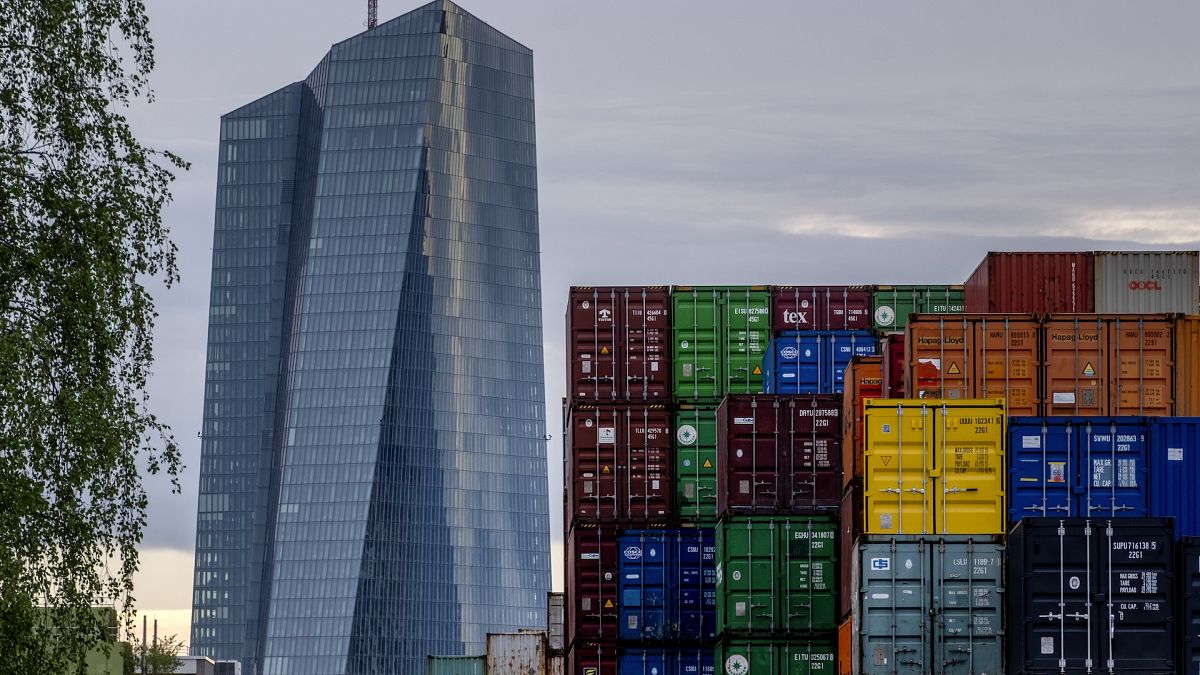The Counsellors Office of the Shanghai Municipal People’s Government is taking Taylor Swift’s concerts as a starting point for research into “commercial performance tourism” with the hope of seizing the opportunity of the performance economy and creating a “ Model.” For the current Chinese market, a $5 billion “consumer miracle” created by the tour — more than 2 million tickets for 52 shows were sold out on the pre-sale day — would help make a significant boost to the fashion sector. A document released by the State Council last month said that the power to approve the performance of arts groups from Hong Kong, Macao, Taiwan and overseas, as well as individual performances, be given to the local cultural departments in the cities of Nanjing, Guangzhou, Wuhan and Chengdu.
The decision created excitement in China’s film and television economy and the performance economy, as well as hope it would help light a spark under the country’s flagging fashion consumption. With the year 2024 entering the second half, various measures that have been deployed to boost consumption have been further validated in the market. Among them, film festivals/film exhibitions and music festivals/large-scale concerts have become effective forces that significantly drive consumption.

According to data from the Association of Performing Arts ticketing information collection platform, in the first half of 2024 the number of commercial performances (excluding entertainment performances) in China was 251,700, an increase of 30.2 percent year-on-year; box office revenues were $2.64 billion, an increase of 13.
2 percent year-on-year, and audiences totaled 79.1 billion, an increase of 27.1 percent year-on-year.
Among them, 119,000 shows were held in the first quarter, equivalent to a daily average of more than 1,300. In addition to the box office, the concerts in lower-tier cities help drive local cultural tourism and consumption, which is known as the “walking GDP.” Taking Chengdu as an example, well-known Chinese artists such as Andy Lau, JJ Lin, Steve Zhou, Miriam Yeung, New Pants Band, Gigi Leung, Lala Hsu and GEM have scheduled nearly 20 large-scale concerts.
These shows attracted visitors to the cities where they were held, contributing greatly to local cultural tourism. Cities and provinces like Shenzhen, Shaanxi, Hunan, Shanxi and many others even introduced special measures or subsidy programs to facilitate tourism and performing arts development. Xining, an important city in the northwest of China, has been expected to become the “Next New York” because the First International Film Festival held there from last month brings together independent films and presents another view of Chinese films outside of theaters.
Now in its 18th year, the festival has helped inject cultural vitality into the eastern gateway of the Tibetan Plateau, bringing tourism and economic opportunities. The “First Frame” program, created by FIFF and Chanel in 2021, has highlighted 252 feature films, 1,173 shorts and about 1,200 creators over the past four years. According to the program, this year’s jury includes Ava Cahen, artistic director of the Cannes International Critics’ Week; Qin Hailu (Amanda Qin), actress, director and screenwriter, and Ye Rufen, producer and supervisor.
A total of 650 films have applied, which is twice the number of last year. After three years of the pandemic, concerts have become a “recovery-is-frenzy” market, growing against the sluggish current economy. On social media platforms, concerts have become the biggest “traffic code.
” Data shows that in the first half of the year, the broadcast volume of concert-related topics in the Douyin index amounted to 22.83 billion, and the related notes in the Xiaohongshu index amounted to 7.6 million, while the browsing volume of Zhihu Topics amounted to 1.
03 billion. Watching performances has become a “soft rigid need” for an increasing number of consumers. The short video platform Kuaishou has spent huge sums of money to get the short video cooperation qualification for Hatsune Miku’s China tour, and exclusively live broadcast her concert on July 21.
The ability of concerts to impact the industrial ecosystem is being seen by more and more sectors. These include upstream creative design and content production, the midstream concert planning, the downstream on-site execution, as well as spending on general retail, trendy toys and figures, cultural and creative derivatives, transportation, cultural tourism and the nighttime economy. All of this, when combined, creates a profitable industrial chain, revitalizing city after city and making “watching performances plus traveling” a new lifestyle.
Economist Ye Tan believes that the popularity of the concert economy for consumers is a self-treat. The concert economy has grown rapidly in recent years, driving consumption and cultural tourism. In contrast, the film industry’s role in driving the economy is more stable.
At this year’s Shanghai International Film Festival in June, Bulgari customized medals and special gifts for the “Golden Goblet Award” winners, including Huang Xiaoming, as the official partner and designated jewelry and watch brand. Brands such as Celine, Ulysse Nardin and Brioni also collaborated with celebrities to help boost their brand exposure in China. The First International Film Festival, which has been held in Xining since 2011, has expanded into training camps, laboratories and venture capital meetings, in addition to the competition and awards sessions.
In terms of fashion, in addition to the four-year partnership with Chanel, the partners of FIFF include Johnnie Walker and Italian casual footwear brand Geox. According to founder Song Wen, innovations at this year’s festival include the introduction of a 14+4 workshop with participation from Zhang Songwen, Tang Wei, Mark Chao and young directors, as well as Cahen, the artistic director of the Cannes Film Festival in the film selection process. Song Wen stated: “The film festival carries the mission of cultural exchange.
This year marks the 60th anniversary of the establishment of diplomatic relations between China and France. We have collaborated with La Femis in France to plan four short films, which will be presented in the ‘Academy Spirit’ section.” The same “French fever” also appeared at the 26th Shanghai International Film Festival, with nearly 70 French films and French coproductions, including “The Taste of Things.
” The Sino French coproduced documentary, “Kangxi and Loui XIV,” was in high demand. The nearly 70 French films and French coproductions accounted for more than one-seventh of the films screened at this year’s SIFF, with more than 300 screenings. Compared to SIFF, which brings together international filmmakers and highlights the city’s development and cultural vitality, FIFF serves as a model for leveraging the film industry to drive local development in cities beyond Beijing, Shanghai, Guangzhou and Shenzhen.
At the same time, it also helps boost the market’s self-sustaining ability by supporting young filmmakers. Beyond economic effects, how can the film and television industry truly become a top provider of emotional value? And how can the fashion industry leverage the power of the celebrity economy? Celebrity endorsements for brands are not only about conveying the brand image and spirit, but also an effective means of driving growth. While film festivals and concerts boost local development and stimulate a surge in consumption, the fashion industry is leveraging these opportunities, whether it is to burnish a brand’s image or to counteract sluggish growth.
Earlier this year, the signing of Chinese director, actress and screenwriter Jia Ling as a brand ambassador for Prada, Lululemon and mass-market brand Mengniu within a span of 50 days sparked widespread discussion. Public opinion held that her various professional roles align with the impressions these three brands create in the minds of consumers. Her directorial persona corresponds to ’s refined intellectual image, the transformation of women depicted in her latest film resonates with ’s brand spirit of engaging in sports and self betterment and her initial comedic image echoes the popular appeal of Mengniu.
Another perspective suggests that it is not unusual for luxury and mass-market brands to choose the same spokesperson. However, after six previous ambassadors faced scandals, Prada’s latest choice sparked some skepticism on China’s social media. Controversy in itself is traffic.
However, luxury brands often don’t overly rely on traffic alone, but instead seek to anchor their image in their history and cultural attributes. Indeed, the collision of the fashion and film industries creates more than just business opportunities. It also can create ripples in terms of controversy and reflection.
As FIFF’s Song Wen told WWD China, films at their best should generate contemplation, taking on serious topics with a spirit of freedom beyond box office considerations. At present, from the summer release of major blockbusters to the resurgence of film festivals, and to the concerts that drive local cultural and tourism across China, the impact of the celebrity economy on the overall one is a bright light in a market that otherwise is seeing flagging consumer demand and growing unemployment. The fashion industry’s increasing collaboration with film and music is enabling it to create a new wave of marketing and storytelling, and potentially spark growth in an otherwise uncertain environment.
.



















